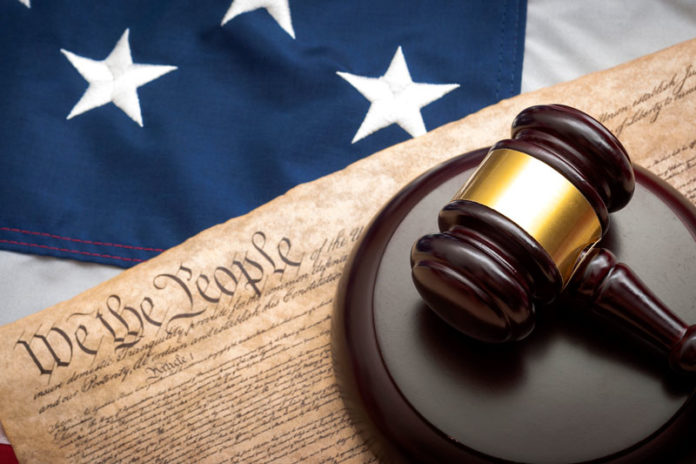In the Preface to their new book, “Shall Not Be Infringed,” David Keene and Thomas Mason, two veteran Second Amendment advocates, include a quote from former President Ronald Reagan:
“Freedom is never more than one generation away from extinction. We didn’t pass it on to our children in their bloodstream. It must be fought for, protected, and handed on for them to do the same . . .“
Reagan uttered those words not during his two terms as president but in 1961, several years before he was first elected to public office. While the former president’s words might not have been delivered in the precise context of the Second Amendment, Keene and Mason quote him here because his admonition to all Americans of all generations, that freedom is not a self-executing principle but must be fought for by every generation, is particularly acute right now, in the election fast upon us.
A central theme of “Shall Not Be Infringed” is that, despite her efforts to soften her express words, President Hillary Clinton would take steps to do precisely what candidate Hillary Clinton has vowed to do – undermine the fundamental Supreme Court ruling in the 2008 District of Columbia v. Heller opinion, that the Second Amendment guarantees an individual right to keep and bear arms. Second Amendment supporters and opponents alike understand that if you overturn that underpinning of Heller, you open the door for all manner of government actions to not just “chip away” at how an individual chooses to exercise his or her Second Amendment rights, but measure to effectively deny any ability to exercise them in the first place. This clearly will be a litmus test for any Supreme Court nominee submitted by Clinton.
In addition to detailing some of the ways in which the Obama administration has moved to place restrictions on Second Amendment rights without pressing for legislative measures (which would be the proper, constitutional procedure to employ), authors Keene and Mason spend considerable time explaining why the anti-gun actions of the United Nations is a very relevant and timely topic for discussion this election.
Why and how the United Nations is involved actively in gun control are very good questions; especially when voters consider where a President Hillary Clinton would stand on the Second Amendment.
The United Nations is – if nothing else – one of the best, if not the best bureaucracies in the entire world. The bureaucratic behemoth on the East River in New York City has turned the concept of “mission creep” into a true art form. Since its formation in the immediate aftermath of World War II as an international organization to promote peace and limit chances for another catastrophic world conflict, the UN has created a maze of bureaucracies that would make Rube Goldberg envious.
Recognizing that most member nation governments never want to appear to not be supporting the UN’s peace efforts, and mindful of the basic law of bureaucracies that once an office is funded the first time it is almost certain to be funded each year thereafter, the UN over the years successfully morphed its general mission for peace and [nuclear] disarmament into a mandate to fight international trafficking in illicit firearms (with the term “illicit” left purposefully vague). This formal effort was launched in the summer of 2001, and has continued to gain funding and support for 15 years.
Why, the reader might ask, is this a problem for gun owners in the United States? It is quite simple actually — the UN knows it cannot implement any meaningful system of tracking the movement of firearms internationally, unless there exists a system for knowing what firearms exist within each member state and when those firearms cross a border. Bingo! Gun registry. And that’s but the tip of the ATT iceberg.
Keene and Mason understand all this. They also understand how quickly a proposal that appears non-threatening one day, can the next day become terribly real and problematic.
For example, throughout the eight years of the George W. Bush administration, the U.S. consistently opposed adoption by the UN of the ATT. However, shortly after becoming Secretary of State in 2009, Hillary Clinton reversed that policy, and the ATT was adopted by the General Assembly in April 2013. The Treaty now awaits action by the US Senate after having been signed in September 2013 by Clinton’s successor at Foggy Bottom, John Kerry.
The very real problem in 2017 if former Secretary of State Clinton becomes President Hillary Clinton, and especially if she wins a Democrat majority in the Senate? The Arms Trade Treaty, already on the shelf awaiting Senate action, could quickly and quietly be dusted off, brought to the floor for a vote, and passed. And that, my friends, is a major reason why every voter who supports the Second Amendment, should read “Shall Not Be Infringed” . . . before November 8th.































